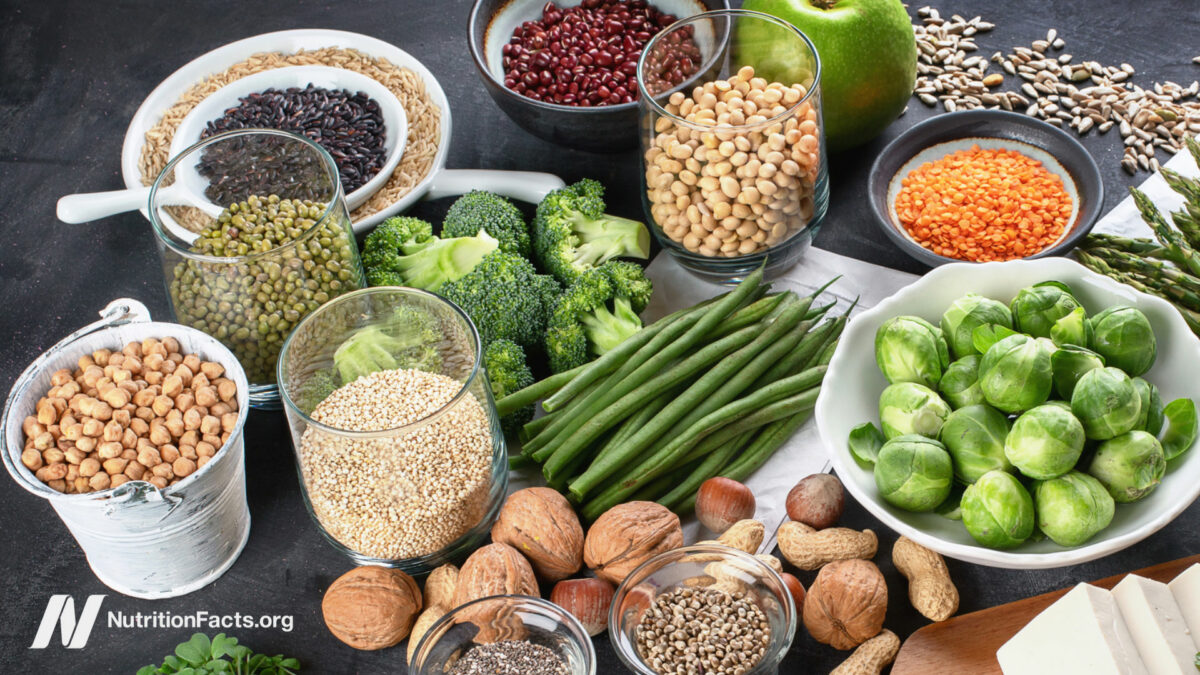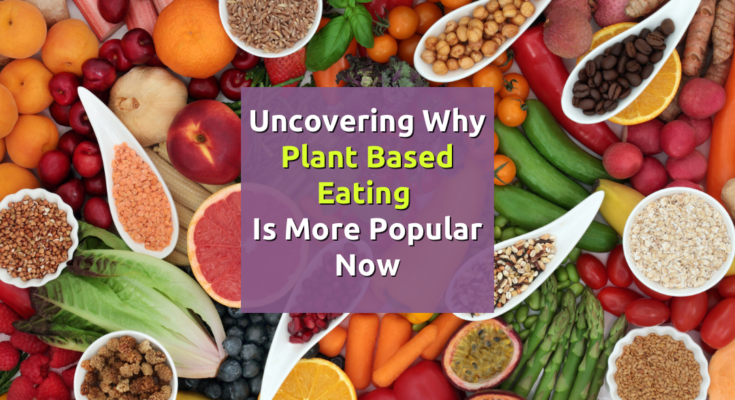Are you considering a shift to a plant-based diet but unsure where to start? You’re not alone. The interest in plant-based eating has surged in recent years, driven by health benefits, ethical considerations, and environmental concerns. This blog post aims to guide health enthusiasts and beginner vegans through the myriad benefits of adopting a plant-based diet and offer practical tips for making the transition smooth and enjoyable.
In this post, you’ll learn about the health advantages of a plant-based diet, discover tips for beginners, explore delicious plant-based recipes, and find strategies to overcome common challenges. Prepare to be inspired and empowered to make positive changes to your diet and lifestyle.
The Increasing Popularity of Plant-Based Diets
Why Plant-Based Diets Are Gaining Momentum
Plant-based diets are no longer a niche choice. With celebrities, athletes, and even entire countries advocating for plant-based eating, it’s no wonder this dietary approach is gaining steam. But what’s driving this change?
Firstly, there’s a growing body of scientific evidence supporting the health benefits of plant-based diets. From reducing the risk of chronic diseases to promoting weight loss, the advantages are hard to ignore. Secondly, increasing awareness of animal welfare and environmental issues has led many to reconsider their dietary choices. Lastly, the availability of plant-based products has skyrocketed, making it easier than ever to adopt this lifestyle.
Statistics Highlighting the Shift
Did you know that in the last decade, the number of people identifying as vegan in the United States has increased by 600%? According to a report by Global Data, 6% of U.S. consumers now identify as vegan, up from just 1% in 2014. Similarly, a survey by The Vegan Society found that the number of vegans in the UK has quadrupled since 2014.
The market for plant-based foods is also booming. In 2020, sales of plant-based foods in the U.S. grew by 27%, reaching a total market value of $7 billion. These statistics underscore the growing acceptance and adoption of plant-based diets across the globe.
The Health Benefits of a Plant-Based Diet
Nutrient-Rich and Heart-Healthy
One of the most compelling reasons to consider a plant-based diet is its potential to improve heart health. Studies have shown that plant-based diets are associated with lower cholesterol levels, reduced blood pressure, and a decreased risk of heart disease.
A well-balanced plant-based diet is rich in essential nutrients, including fiber, vitamins, minerals, and antioxidants. Fruits, vegetables, whole grains, nuts, and seeds provide a wide array of nutrients that support overall health and well-being. Additionally, the high fiber content in plant-based foods aids digestion and promotes a healthy gut.

Weight Management and Diabetes Prevention
Struggling with weight management? A plant-based diet might be the solution. Research suggests that individuals who follow plant-based diets tend to have lower body mass indexes (BMIs) compared to those who consume animal products. The emphasis on whole, unprocessed foods helps control calorie intake and supports weight loss.
Furthermore, plant-based diets have been shown to improve insulin sensitivity and reduce the risk of developing type 2 diabetes. A study published in the Journal of the American Medical Association found that individuals following a plant-based diet had a 34% lower risk of developing diabetes than those on non-vegetarian diets.
Reducing the Risk of Chronic Diseases
Beyond heart health and diabetes prevention, plant-based diets offer protection against various chronic diseases. Research indicates that plant-based eaters have a lower risk of certain cancers, including colorectal and breast cancer.
The anti-inflammatory properties of plant-based foods also play a role in reducing the risk of conditions such as arthritis and other inflammatory diseases. By reducing inflammation and oxidative stress, plant-based diets can contribute to overall longevity and improved quality of life.
Tips for Transitioning to a Plant-Based Diet
Start Slow and Steady
Transitioning to a plant-based diet doesn’t have to happen overnight. Gradual changes are often more sustainable and less overwhelming. Start by incorporating more plant-based meals into your weekly routine. Aim for “Meatless Mondays” or try plant-based breakfasts and snacks.
Experiment with different foods and recipes to discover what you enjoy. Remember, it’s not about perfection; it’s about progress. Every small step counts towards a healthier lifestyle.
Focus on Whole Foods
While there are plenty of processed plant-based options available, it’s best to prioritize whole, minimally processed foods. Fruits, vegetables, legumes, whole grains, nuts, and seeds should form the foundation of your diet.
Whole foods offer the most nutritional value and help you feel satisfied and energized. They are also less likely to contain added sugars, unhealthy fats, and artificial ingredients commonly found in processed foods.
Educate Yourself and Plan Ahead
Knowledge is power. Take the time to educate yourself about plant-based nutrition and meal planning. Understanding your nutritional needs will help you make informed choices and ensure you’re getting all the essential nutrients.
Planning your meals in advance can also make the transition smoother. Create weekly meal plans, prepare grocery lists, and batch-cook meals to save time and reduce stress. Having healthy, plant-based options readily available will make it easier to stick to your new eating habits.
Delicious Plant-Based Recipes to Try
Breakfast Boosters
Kickstart your day with a nutritious, plant-based breakfast. Try a smoothie bowl packed with fruits, greens, and plant-based protein powder. Top it with nuts, seeds, and granola for added crunch.
Overnight oats are another excellent option. Combine rolled oats with plant-based milk, chia seeds, and your favorite fruits. Refrigerate overnight, and you’ll have a delicious and convenient breakfast ready in the morning.
Lunchtime Favorites
For lunch, consider a hearty grain bowl. Start with a base of quinoa, brown rice, or Farro. Add a variety of colorful vegetables, beans, and a flavorful dressing. The possibilities are endless, and you can customize your bowl to suit your taste preferences.
Wraps and sandwiches are also great plant-based lunch options. Fill a whole-grain wrap with hummus, avocado, veggies, and tempeh or tofu for a satisfying meal. Alternatively, create a plant-based sandwich using whole-grain bread, fresh veggies, and a delicious spread like almond butter or tahini.
Dinner Delights
Dinner is an opportunity to get creative with plant-based ingredients. Try a stir-fry with tofu or tempeh, a variety of vegetables, and a savory sauce. Serve it over brown rice or noodles for a complete meal.
Another option is a hearty plant-based chili. Combine beans, tomatoes, vegetables, and spices in a pot and simmer until flavors meld together. Top with avocado, cilantro, and a squeeze of lime for a burst of freshness.
Overcoming Common Challenges
Addressing Nutrient Concerns
One common concern among those new to plant-based eating is meeting nutritional needs. While a well-balanced plant-based diet can provide all essential nutrients, it’s important to pay attention to certain nutrients.
Ensure you’re getting enough protein by incorporating beans, lentils, tofu, tempeh, nuts, and seeds into your meals. Iron, vitamin B12, omega-3 fatty acids, and calcium are other nutrients to monitor. Consider fortified foods or supplements if needed, and consult with a healthcare professional for personalized guidance.
Dealing with Social Situations
Navigating social situations can be challenging when adopting a plant-based diet. Friends and family may not understand your dietary choices, and dining out can sometimes be tricky.
Communicate your dietary preferences with those around you and explain the reasons behind your decision. When dining out, check restaurant menus in advance and call ahead to inquire about plant-based options. Many restaurants are becoming more accommodating and offer delicious plant-based dishes.
Staying Motivated and Inspired
Maintaining motivation is key to long-term success on a plant-based diet. Surround yourself with a supportive community, whether it’s through social media groups, local meetups, or online forums.
Experiment with new recipes and ingredients to keep things exciting. Explore different cuisines and cooking techniques to expand your culinary horizons. Remember why you started this journey and the positive impact it has on your health and the planet.
Conclusion
Adopting a plant-based diet is a powerful step towards a healthier, more sustainable lifestyle. By understanding the benefits, following practical tips, and exploring delicious recipes, you can make the transition smooth and enjoyable.
Start slow, focus on whole foods, and educate yourself about plant-based nutrition. Overcome common challenges with confidence and stay motivated by connecting with like-minded individuals.
Are you ready to take the plunge? Begin your plant-based journey today and experience the incredible benefits for yourself. Your body, the animals, and the planet will thank you.
Read Also : Demystifying Breast Cancer Types and Symptoms




